The family-owned company, which has its headquarters in Kirkby-in-Ashfield, is now sorting as much as 2,800 tonnes of fully-mixed green, brown and clear glass every week at its new £1.5 million facility in Ellesmere Port, Cheshire.
Recresco's move to bring in American colour-sorting technology to the UK comes as more and more local authorities are seeking to collect glass mixed. While other parts of the glass container industry continues the attempt to encourage councils to keep glass colours separated, however, new forecasts from WRAP suggest an inevitable decline in the collection of separate glass colours in the UK, from 455,000 tonnes a year in 2008 to 385,000 tonnes a year by 2015.
And, WRAP predicts a rise in mixed glass collections from 1.18 million tonnes a year in 2008 to 1.97 million tonnes a year by 2015, thanks to expanding kerbside collection schemes and also the use mixed glass bring banks.
Recresco believes it is the glass industry that must change to cope with this rise in mixed-colour collections, rather local authorities to halt the change.
Area manager Matthew Demmon, who runs the Ellesmere Port facility located next to the Bridgewater paper mill, tells letsrecycle.com: “We've got to go mixed for local authorities to collect efficiently. How can you ensure they collect all their glass and come back with a vehicle full otherwise?”
“And, local authorities often don't have the space for three different collection banks for glass,” adds John Ferguson, the company's business development manager.
Ellesmere Port
Mr Demmon says, “We're taking in around 1,700 tonnes of glass a week here – around 90% of that mixed – and it's not enough. We need about 2,400 tonnes a week, and in the longer term we're going to need more like 4,300 tonnes.”
The company has only recently gained access to the second warehouse on the site, and the fact that it is double the size of their first warehouse at 1.75 acres usable space means the operation can be significantly expanded. The four dual-eject colour-sort machines currently in use will be moved into the new building, with two new machines to be added to the system.
The system sees mixed glass fed through colour sort machines twice – two sorting machines feed two more sorting machines. Each machine is twice as effective as others on the market because material can be ejected in two directions at once.
The new set-up, however, will see four machines feeding two machines, which should double throughput.

This can be put back through the system for up to 99.5% purity.
Matthew Demmon, Recresco
The machines, supplied by MSS Inc of Nashville, Tennessee, work by optically detecting the colours of glass particles passing through in order to sort them into their respective colours. On a good day, Mr Demmon reveals that the system can process 25 tonnes of material, with a 90% purity of resulting glass. “This can be put back through the system for up to 99.5% purity,” he adds.
Sorted glass generally goes to Quinn Glass – green and clear to the Elton plant, brown to Quinn's other container plant over in Ireland – but also to other container manufacturers, since Recresco is an independent collector “with no fixed ties to any glassmaker”.
The company is now seeking to sign up as many local authorities as possible to provide glass, and says it has to constantly explode the “myth” that mixed glass has to go into aggregates.
“Aggregates companies are paying £13 per tonne for mixed glass – they can do that with the PRN – but local authorities are saying to us 'give us a quote – we'd rather not see our glass going into the roads',” Mr Demmon says.
Such has been the success of the Ellesmere Port facility since it was opened last year, a second similar-sized facility could be quickly on the way for another site within the UK. With the Ellesmere Port facility being advantageously position to pick up local authority contracts within North Wales and the North West of England, a second such site could also be a springboard for more collection contracts with local authorities or commercial glass waste producers.
“We're looking to establish another Ellesmere Port-type facility,” says Mr Ferguson, “We are taking the processing as close to market as possible, so the costs of transporting are less.”
Green imbalance
The second “myth” that Recresco is seeking to dismiss in dealing with more local authorities, is that there is no demand for green glass. Including its supplying of the new £300 million Quinn Glass container plant nearby in Elton, Recresco has ample demand for green glass, particularly with many New World wines now being bottled in the UK.
“Bottling wine in the UK is so much better for Tesco, Sainsbury's and the like,” explains Mr Demmon. “You don't get as many breakages, you don't get pilfering, you don't get as much spoilage, you can ship more wine without the weight and the space for the glass.”
There is still a “green imbalance” in this country – a much larger amount of green glass arising in the waste stream compared to the amount used by UK glass makers, around 700,000 tonnes according to this week's glass exports report from WRAP. But along with a certain amount of export, Mr Demmon says the days of the “green glass mountain” are over, and that progress on the imbalance is also now beginning. “It's nowhere near balance yet,” he says, “but we're starting to see the ball rolling.”
With all the talk about quality in recycling at the moment – with rival collectors Berryman actively supporting the Campaign for Real Recycling – Mr Demmon reveals that most local authorities are providing quality material, but that the Ellesmere Port facility has screens to keep out most of the contaminants, with the colour-sort machines able to deal with the rest, as well as the ceramics.
“Some local authorities give very good glass, like Kendal, Chester and Bristol, but none are so bad we can't usually deal with it – we don't reject loads, but sometimes we will go back to the authority and give them another chance to get it right.”
Glass from materials recycling facilities (MRFs) is another matter entirely – but not without promise. Mr Demmon says Recresco is carrying out trials with some MRFs to try to take the material. Rather than stones, which has been cited as a major problem by other glass collectors in MRF-processed glass, the main problem for Recresco is that glass that has been through a MRF often arrives under-sized, which cannot then by put through the colour-sort machines effectively.
“Undersize material – about 5% of our glass – goes into the roads at present,” Mr Demmon says, “although Recresco are looking for a range of applications for it, since it's good material.”
As it seeks to increase the amount of glass collected, Recresco is also attempting to bring on board glass from the commercial sector, working with waste management companies to take in material from the pubs, clubs and restaurants.
The difficulty to be overcome is the frequent changes in landlords at many pubs, with changes of personnel sometimes setting back the process of recruiting premises.
Mr Ferguson says: “We're trying harder and harder to cover the commercial market – we are keen to work with as many waste management companies as we can to bring in the commercial glass.”
Price support
All those millions are not going to infrastructure – if it did, we'd have a dozen plants like Ellesmere up and running around the country.
Recresco's Tim Gent on PRN funding
At the moment, Recresco is paying more for its mixed glass than the aggregates sector, but Mr Demmon believes that in the long-term, the financial benefits for container manufacturers of using recycled glass can sustain the prices paid for cullet more than the aggregates industry will be able to match.
This, particularly if packaging waste recovery note (PRN) revenues dry up.
Using recycled glass instead of virgin materials allows a glass furnace to be run at a lower temperature – saving fuel, as well as bringing about a reduction in emissions that are now subject to Europe's emissions trading scheme.
“Every tonne of recycled glass saves glassmakers a tenner in energy savings and carbon taxes – that's the value of not producing so much CO2,” says Mr Demmon.
“Glassmakers have traditionally used the cost of their raw materials to determine the price of cullet, only recently has the price of PRNs come into it. In Europe, they are already beginning to see the price of emissions trading and the cost savings reflected.”
Recent recommendations from Defra's ACP have even suggested that a way to bring in more investment for recycling infrastructure will be to ban the use of PRN money on supporting the prices paid for collected packaging, including glass (see letsrecycle.com story).
Recresco director Tim Gent says: “We put PRN money into price support because the aggregates industry spends its PRN money on price support. It might seem a little Big Brother, but all those millions are not going to infrastructure – if it did, we'd have a dozen plants like Ellesmere up and running around the country, one for every area to sort mixed glass.
“We need the investment – that suggestion of the ACP is positive, but I can't see local authorities ever allowing the end of price support,” he adds.
Recresco believes that it is now collecting as much as 30% of the UK's recycled glass, and if it can set up another “Ellesmere” somewhere in the UK, Mr Ferguson suggests that the company could have the capacity to collect anything up to 50% of the UK's glass waste.
If that is the case – and the company believes another colour-sorting sorting hub for its network could even be in place before the year is out – Recresco foresees its rival collectors on the run if they do not invest in colour-sorting technology.





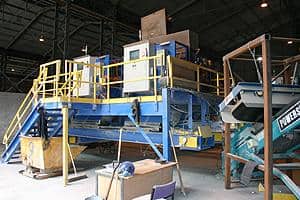
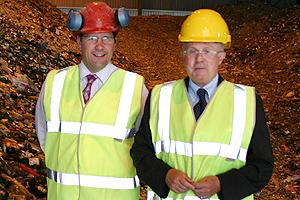
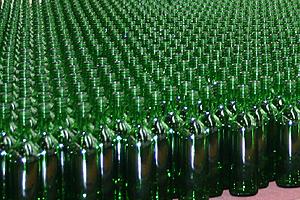
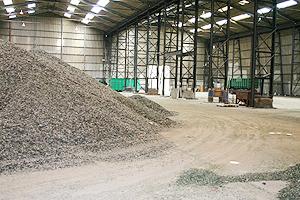

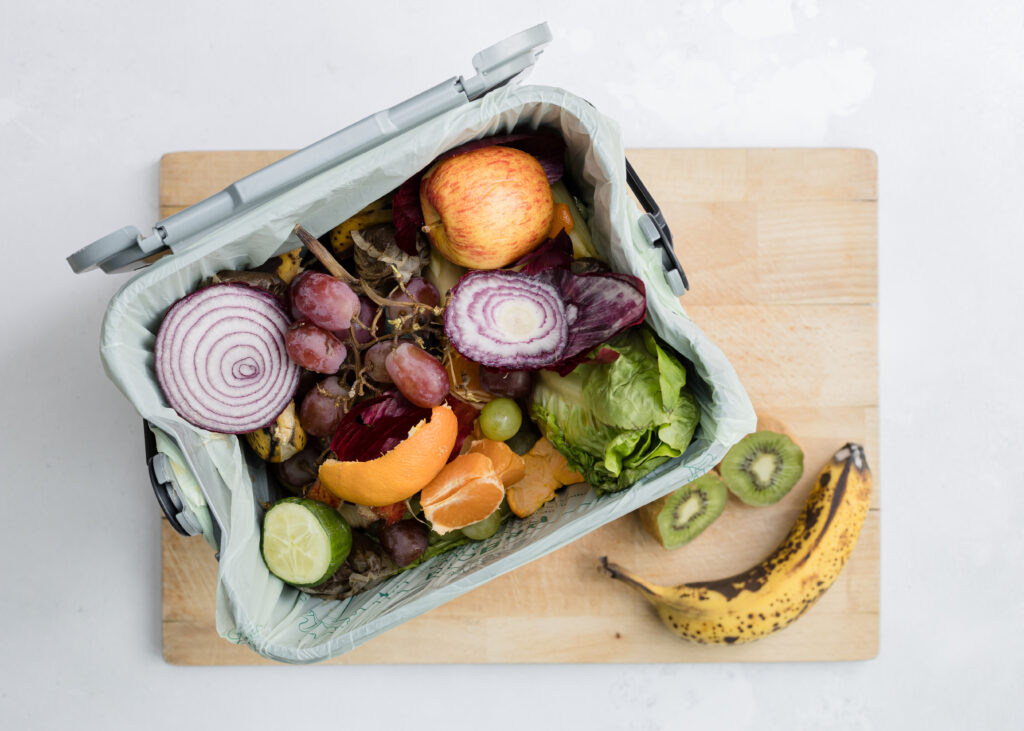

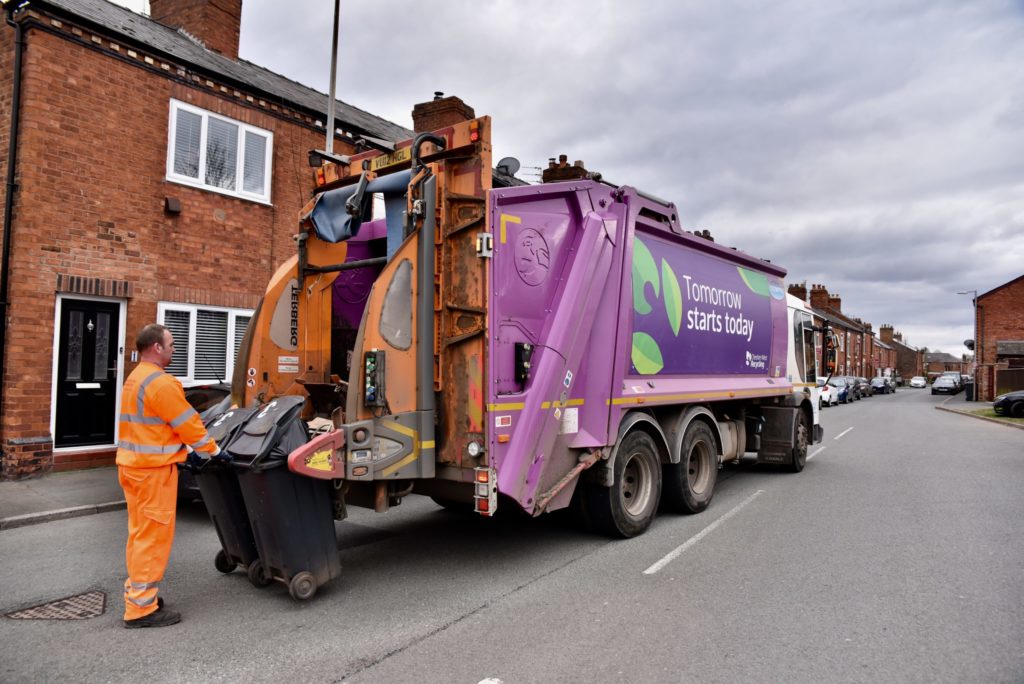

Subscribe for free